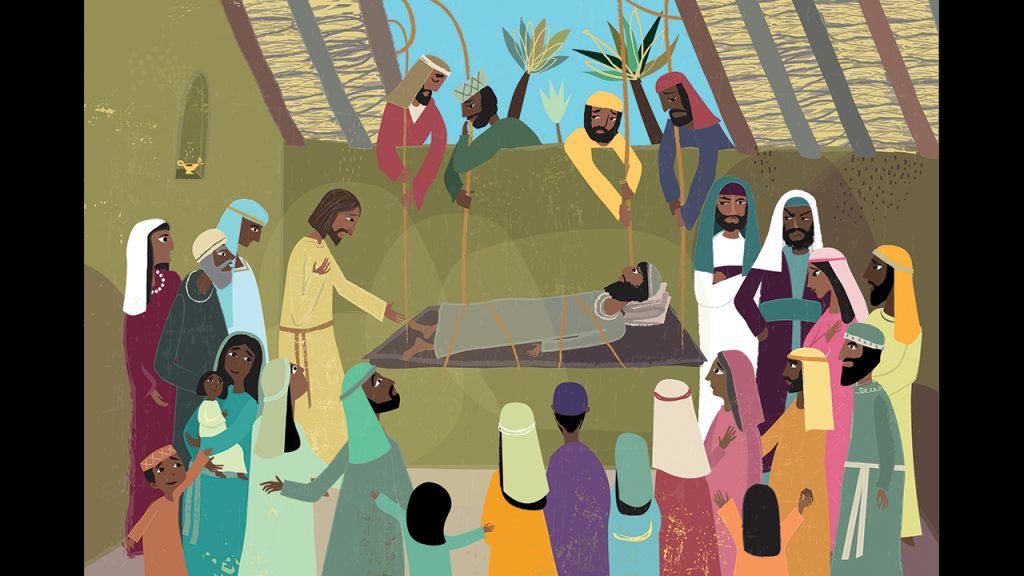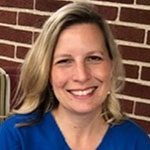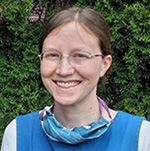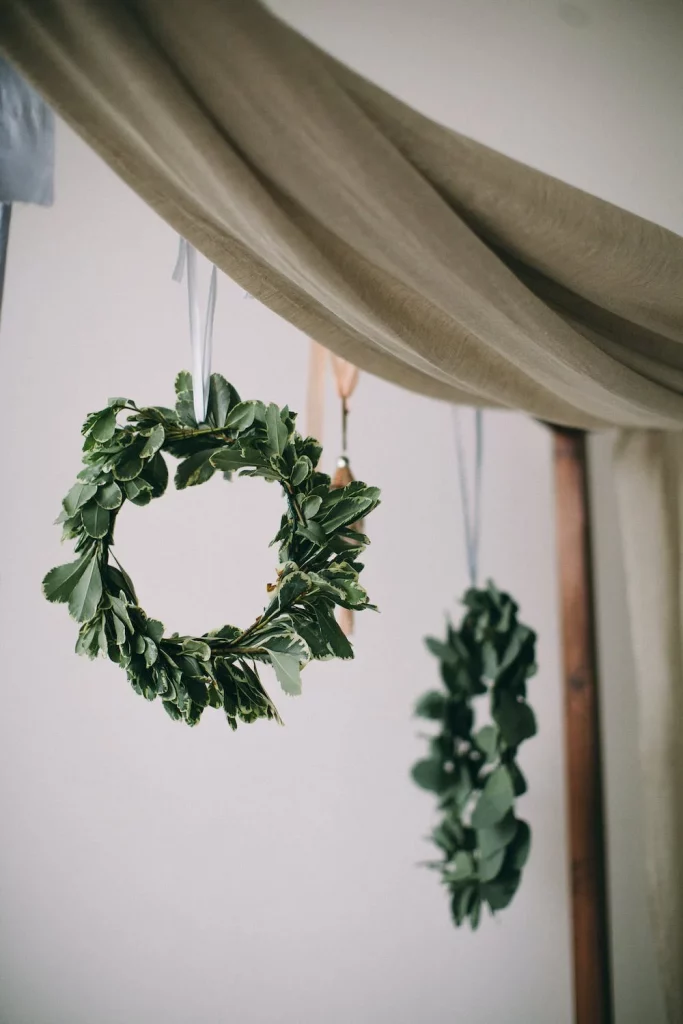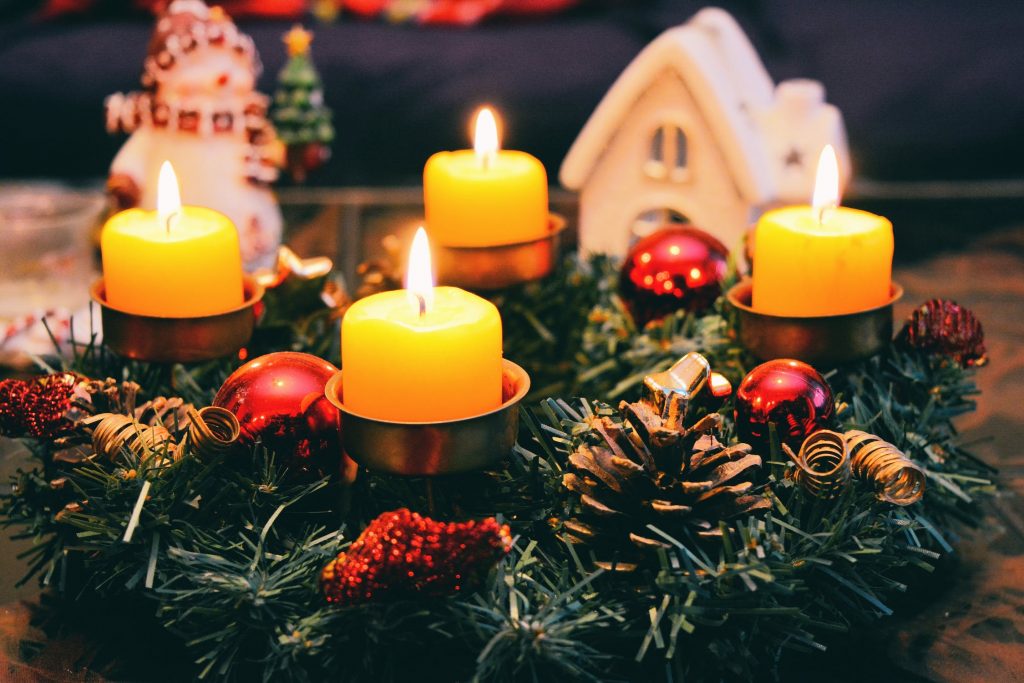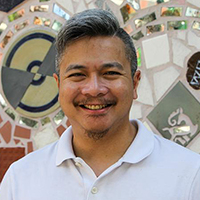by Paul Shrag, Anabaptist World
Originally published on May 13, 2025, in Anabaptist World, and reprinted with permission.
A Mosaic Mennonite Conference proposal to redefine its relationship to the denomination won’t work, the Mennonite Church USA Executive Board decided May 8.
Mosaic, one of MC USA’s largest conferences, had proposed to become a program entity — an organization that provides services to meet churchwide goals.
But the Executive Board, meeting concurrently with the Constituency Leaders Council in Wichita, Kan., passed a motion saying the idea “is not viable within our structure.”
A Pennsylvania-based conference that has expanded nationwide, Mosaic is evaluating its affiliation — seeking a partnership with MC USA rather than membership — and may decide the relationship’s future in November.
The Executive Board proposed a mediated conversation with the Mosaic board to seek “reconciliation for broken relationships.”
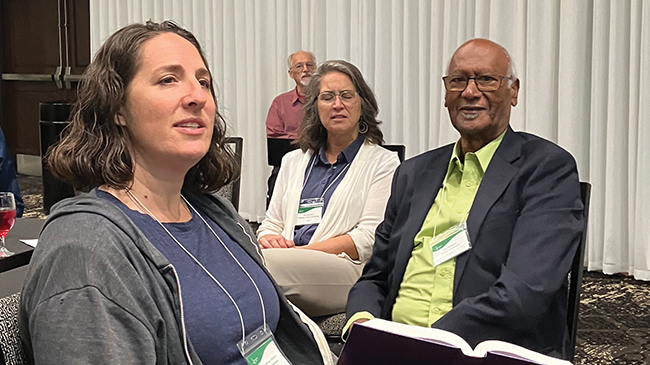
Mosaic moderator Angela Moyer Walter and executive minister Stephen Kriss said the Mosaic board would consider the request.
Moyer Walter said Mosaic leaders didn’t have other partnership ideas to propose.
Explaining the Executive Board’s action to the CLC, MC USA moderator Jon Carlson cited “the strangeness of the relationship” that would result from redefining Mosaic as something other than an area conference.
“We recognize the complexity of a body that continues to act in many ways as an area conference but is not treated as an area conference within our system,” he said.
He noted that MC USA’s two current program entities — Everence, a financial organization, and Mennonite Health Services Association — do not have member congregations.
Mosaic has about 7,500 members in 60 congregations. Based in Lansdale, Pa., it was formed in 2019, uniting Franconia and Eastern District conferences.
During a May 9 joint session of the Executive Board and the CLC — an advisory group of conference and constituency group leaders — Moyer Walter said it was “sad and painful” to hear the Executive Board’s decision.
“We were hopeful of trying something new that would work for both MC USA and Mosaic, as the status quo was not healthy for us to remain a member conference,” she said.
“Our churches are doing creative things. . . . It is hard as a conference leader when the things our congregations are bringing to us aren’t always prioritized at the MC USA level. . .
“We welcome continued conversations. . . . Even when our structures don’t hold, we still care deeply about the church. We are still the same people in ministry. We still want to partner in ways that feel healthy and mutual together.”
Mosaic is in its third year of discernment about affiliation. Last November, delegates voted to “establish a robust partnership” with MC USA without defining how this would differ from the current relationship. They directed a team to bring proposals for bylaw changes to their 2025 assembly Nov. 1.
After last year’s assembly, two Mosaic congregations that wanted to disaffiliate from MC USA withdrew from the conference: Vincent in Spring City, Pa., and Salem in Quakertown, Pa.
After Moyer Walter and Carlson addressed the joint session, Heidi Regier Kreider, conference minister of Western District Conference, said she hoped Mosaic would stay with MC USA and added that some Western District congregations “feel affinity” with Mosaic congregations.
“We find Mosaic’s presence in MC USA strengthens all of us,” she said. “There is theological diversity, and that does not prevent us from working together.”
Also at the meeting, the Executive Board recommended resolutions and bylaw changes to delegates at the MC USA biennial convention July 8-12 in Greensboro, N.C.
One would reaffirm and update a “Churchwide Statement on Immigration” first approved in 2003 and reaffirmed in 2014.
Lorraine Stutzman Amstutz, denominational minister for peace and justice, said the resolution would add new resources and action steps at a time of fear for immigrant communities.
“This is a critical time for us to acknowledge policies that are impacting our immigrant and asylum-seeking communities and strengthen our commitment to action on behalf of those who are threatened and feeling fearful for their lives here,” she said.
A second resolution proposes to require all conferences and congregations to use the same set of abuse response and prevention policies for pastors and ministerial leaders. Current policies are voluntary, leading to inconsistent application.
“Consistency across the system will lead to safer congregations for minors and vulnerable adults,” according to the resolution’s introduction.
The board and CLC members acknowledged that some might be wary of a mandate from the denominational board.
Chris Nord, moderator of Pacific Northwest Mennonite Conference, said: “Mennonites are suspicious of top-down polity, so I think it’s important to show how this proposal actually, even though it does impose a denominational [mandate], is to remediate against power hoarding and abuse of power.”
A new Prevention and Accountability Resource will replace the current Ministerial Sexual Misconduct and Policy and Procedure Document and be available to all, regardless of whether delegates decide to require all to use it.
Proposed bylaw changes include revisions related to the integration of Mennonite Education Agency into the Executive Board’s operations — a structural change the Executive Board and MEA board have already approved. MEA has seen its governance role over higher-education institutions greatly diminish over the past 20 years. By Aug. 1, MEA will cease to exist, and its functions will be moved into the work of denominational staff.
Another proposed bylaw change would give the Executive Board the ability to recommend the removal of an agency’s executive director. The agency’s board would still have the final say.
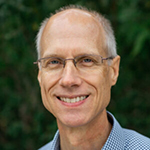
Paul Shrag
Paul Schrag is editor of Anabaptist World. He lives in Newton, Kan., attends First Mennonite Church of Newton and is married to Wendy. They have two adult daughters, Abby Koch and Becca Schrag. He was on the staff of Mennonite World Review for 32 years, serving as editor since 1996.

